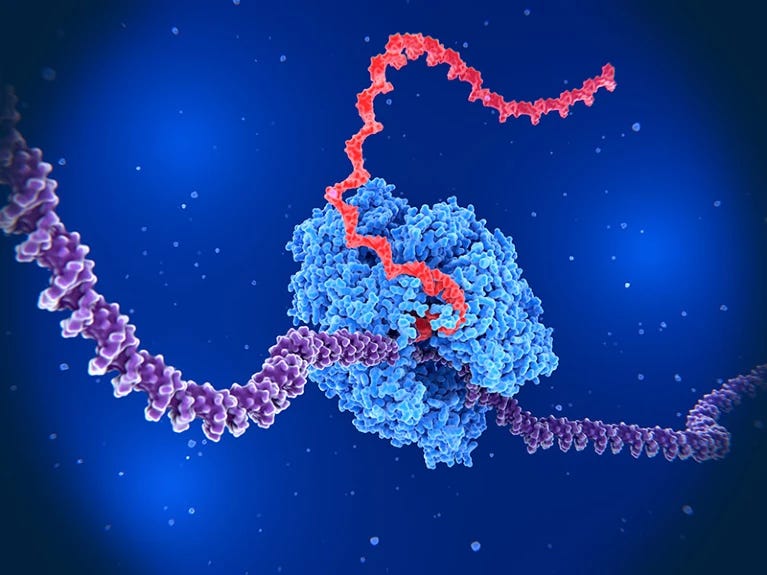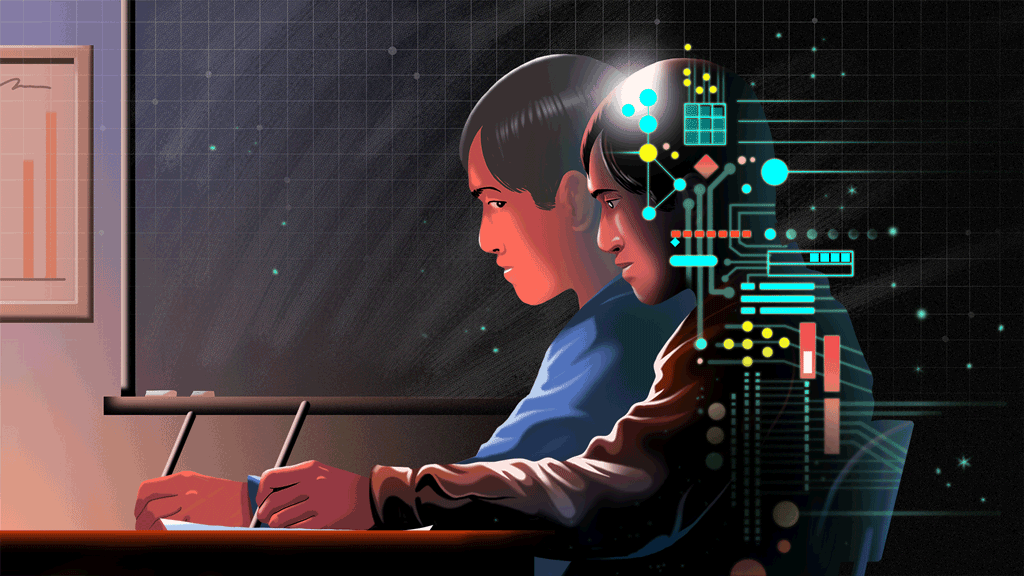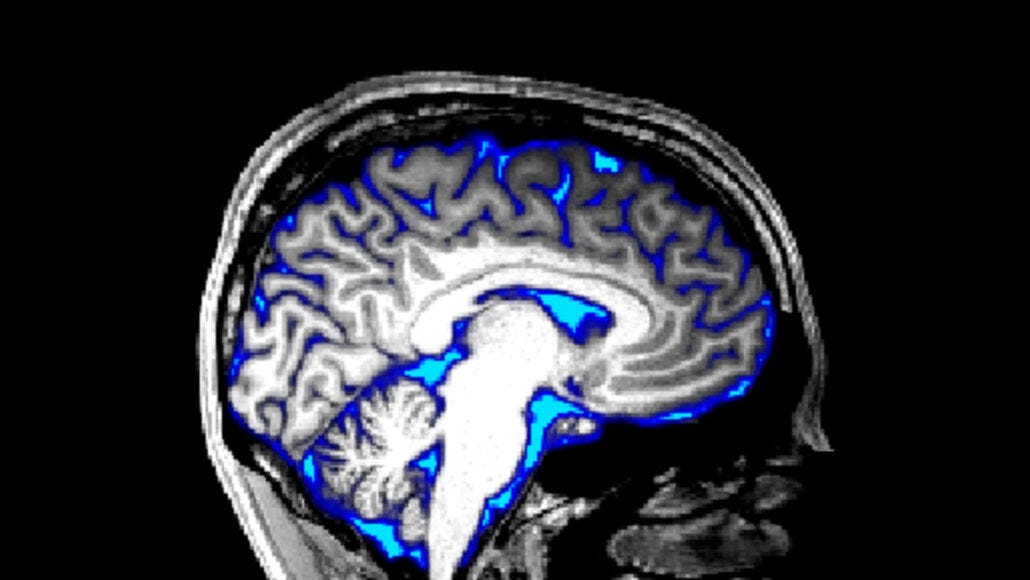Sci-Ed Update 262
How to tolerate and manage uncertainty, gut feeling, guys fare better in re-grading, sleep well before vaccination, exercise & dopamine, your mouse as a stress indicator, aging discovery, & more!
The Uncertainty Effect with Michelle Lazarus
The new episode is here!
In Episode 135 of The A&P Professor podcast for anatomy and physiology faculty, we tackle the intriguing topic of uncertainty!
I'm thrilled to have the esteemed Michelle Lazarus, author of The Uncertainty Effect: How to Survive and Thrive through the Unexpected, as my guest. Together, we embark on a captivating journey through the realms of science, medicine, and academia, as Dr. Lazarus shares her invaluable insights on uncertainty tolerance. So, tune in for a fun and enlightening conversation that will leave you empowered and inspired!
When you read this book—and I know that you’ll want to after hearing this episode—you qualify for a professional development credential from our education program.
To listen to this episode, click on the player (if present) or this link→ theAPprofessor.org/podcast-episode-135.html
…or find The A&P Professor podcast wherever you listen to audio!
Ask and You Shall Receive? Gender Differences in Regrades in College
Image: PxHere
Using administrative data from a large public university, we show that male students are 18.6% more likely than female students to receive favorable grade changes made by instructors. Surveys of students and instructors reveal that regrade requests are prevalent, and that male students are more likely to ask for regrades on the intensive margin. We corroborate the gender differences in regrade requests in an incentivized controlled experiment: we find that males have a higher willingness to pay to ask for regrades. Almost a third of the gender difference is due to gender differences in beliefs and the Big Five traits.
Kevin Patton comment→ This does not surprise me. But it does sadden me.
Read more→ AandP.info/efp
A SENSE OF SELF
Communication between the brain and other organs shapes how we think, remember, and feel
…scientists are starting to unravel how our wet, spongy, slippery organs talk to the brain and how the brain talks back. That two-way communication, known as interoception, encompasses a complex, bodywide system of nerves and hormones. Much recent exploration has focused on the vagus nerve: a massive, meandering network of more than 100,000 fibers that travel from nearly every internal organ to the base of the brain and back again.
With new techniques for mapping the routes of nerves in animals and measuring interoception in people, researchers are adding surprising new details to the rough sketches Penfield and others devised.
For more than 100 years, scientists have known that the vagus nerve carries signals between the organs and the brainstem. As part of the parasympathetic nervous system—active when the body is at ease or recovering from stress—the vagus regulates autonomic functions such as heart rate, breathing, and digestion. But new studies have shown signals carried by vagal fibers climb beyond the brainstem, revealing a broad interoceptive network in the brain that interprets internal changes, anticipates the body's needs, and sends commands to fulfill them.
The network includes brain regions involved in more complex cognition, which means the nerves monitoring the body's basic workings also respond to—and influence—how we remember, process emotion, and even construct our sense of self.
Read more→ AandP.info/qh1
A good night’s sleep could help vaccines work better
Get those zzz’s for immunity.
A review published in the journal Current Biology on March 13 found that adults who got less than six hours of sleep a night tended to produce fewer antibodies than those who got at least seven hours of sleep. The difference was on par with the decrease in antibodies two months after a brand new COVID jab. The authors didn’t specifically find data for the COVID shots, however—they combined and analyzed seven studies on influenza and hepatitis vaccinations to draw a broader conclusion on how rest benefits people’s immunity.
Read more→ AandP.info/oui
Whether Physical Exertion Feels Easy or Hard May Be Due to Dopamine Levels
Image: PxHere
Dopamine, a brain chemical long associated with pleasure, motivation and reward-seeking, also appears to play an important role in why exercise and other physical efforts feel “easy” to some people and exhausting to others, according to results of a study of people with Parkinson’s disease led by Johns Hopkins Medicine researchers. Parkinson’s disease is marked by a loss of dopamine-producing cells in the brain over time.
The findings, published online April 1 in NPG Parkinson’s Disease, could, the researchers say, eventually lead to more effective ways to help people establish and stick with exercise regimens, new treatments for fatigue associated with depression and many other conditions, and a better understanding of Parkinson’s disease.
Read more→ AandP.info/mdu
The Way You Use Your Mouse Could Reflect Your Level of Stress at Work
The way people type and use their computer mouse can be better stress indicators than their heart rate, Swiss researchers said on Tuesday, adding their model could help prevent chronic stress.
Researchers at the Swiss Federal Institute of Technology in Zurich (ETHZ) said they had used new data and machine learning to develop a fresh model for detecting stress levels at work, based solely on the way people type or use their mouse.
"People who are stressed move the mouse pointer more often and less precisely and cover longer distances on the screen," Nägelin said.
The researchers also found that people who feel stressed in the office make more mistakes when typing and tend to write in fits and starts, with many brief pauses.
Relaxed people by contrast take fewer but longer pauses when typing, they found.
Kevin Patton comment→ I killed the regular mouse and instead use a RollerMouse roller pointer. What does that say about me?
Read more→ AandP.info/y5p
Ageing studies in five animals suggests how to reverse decline
Smoothing the speed bumps in an important cellular pathway seems to be implicated in ageing.

Ageing seems to affect cellular processes in the same way across five very different kinds of life — humans, fruit flies, rats, mice and worms — according to a study published in Nature on 12 April. The findings could help to explain what drives ageing and offer suggestions for how to reverse it.
“It opens up a really fundamental new area of understanding how and why we age,” says Lindsay Wu, a biochemist at UNSW Sydney in Australia.
As animals age, a variety of molecular processes inside cells become less reliable — gene mutations become more frequent, and the ends of chromosomes snap off, making them shorter. Many studies have explored ageing’s effects on gene expression, but few have investigated how it affects transcription — the process whereby genetic information is copied from a blueprint DNA strand to RNA molecules — says Andreas Beyer, a computational biologist at the University of Cologne in Germany.
The [new] study is a “really exciting piece of work” that demonstrates how ageing mechanisms are consistent across distantly related species, says Colin Selman, who studies ageing in mammals at the University of Glasgow, UK. It also opens the door to exploring how Pol II could be a target for drugs that slow down the ageing process. Changes to Pol II’s transcription process have been implicated in many diseases, including various types of cancer, and a range of drugs have been developed that target Pol II and the molecules that facilitate it. “There may be opportunities to effectively repurpose some of these drugs to investigate their effects on ageing,” says Selman.
Read more→ AandP.info/oh0
How ChatGPT and similar AI will disrupt education
Teachers are concerned about cheating and inaccurate information
Students are turning to ChatGPT for homework help. Educators have mixed feeling about the tool and other generative AI. GLENN HARVEY
ChatGPT has wowed its users. “It’s so much more realistic than I thought a robot could be,” says Avani Rao, a sophomore in high school in California. She hasn’t used the bot to do homework. But for fun, she’s prompted it to say creative or silly things. She asked it to explain addition, for instance, in the voice of an evil villain.
Given how well it performs, there are plenty of ways that ChatGPT could level the playing field for students and others working in a second language or struggling with composing sentences. Since ChatGPT generates new, original material, its text is not technically plagiarism.
Students could use ChatGPT like a coach to help improve their writing and grammar, or even to explain subjects they find challenging. “It really will tutor you,” says Vogelsinger, who had one student come to him excited that ChatGPT had clearly outlined a concept from science class.
Educators could use ChatGPT to help generate lesson plans, activities or assessments — perhaps even personalized to address the needs or goals of specific students.
Xiaoming Zhai, an expert in science education at the University of Georgia in Athens, tested ChatGPT to see if it could write an academic paper. He was impressed with how easy it was to summarize knowledge and generate good writing using the tool. “It’s really amazing,” he says.
All of this sounds wonderful, but really big problems exist. Most worrying, ChatGPT and other similar tools can often get things very wrong. They don’t pull facts from databases. Rather, they are trained to generate new text that sounds natural. They remix language without understanding it, which can lead to glaring mistakes.
Read more→ AandP.info/0jh
Scientists triggered the flow of spinal fluid in the awake brain
The technique could help flush out harmful biological waste
This MRI image of a brain shows regions of cerebrospinal fluid in blue. S.D. WILLIAMS (CC-BY 4.0)
Waves of cerebrospinal fluid which normally wash over brains during sleep can be made to pulse in the brains of people who are wide awake, a new study finds.
The clear fluid may flush out harmful waste, such as the sticky proteins that accumulate in Alzheimer’s disease (SN: 7/15/18). So being able to control the fluid’s flow in the brain could possibly one day have implications for treating certain brain disorders.
“I think this [finding] will help with many neurological disorders,” says Jonathan Kipnis, a neuroscientist at Washington University in St. Louis who was not involved in the study. “Think of Formula One. You can have the best car and driver, but without a great maintenance crew, that driver will not win the race.” Spinal fluid flow in the brain is a major part of that maintenance crew, he says. But he and other researchers, including the study’s authors, caution that any potential therapeutic applications are still far off.
Kevin Patton comment→ I know my brain could use a good flush!
Read more→ AandP.info/k6f









